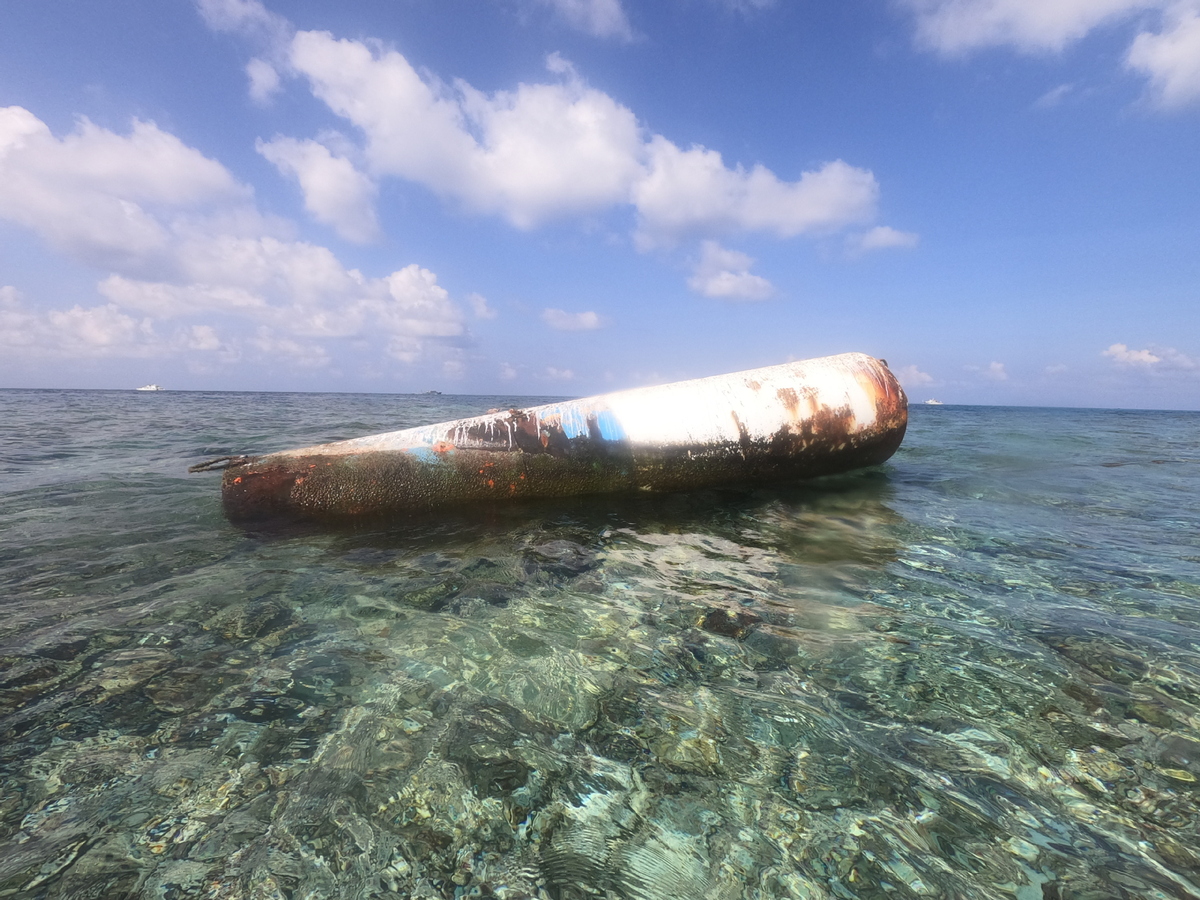
A buoy belonging to the Philippines' illegally grounded vessel is pictured near Ren'ai Reef in the South China Sea on July 8. [Photo/Xinhua]
This is an editorial from China Daily.
While some might dismiss the move as a farce, or even a "trick" of Beijing in its public relations contest with Manila over their maritime disputes, any serious reader of a fact-based report that China has released will come to a different conclusion.
The report released on Monday exposes the grave damage done to the ecosystem around Ren'ai Reef in the South China Sea by the vessel that the Philippines has illegally grounded there.
Highlighting the vulnerability of the marine ecosystem in the region, the report also draws attention to the long-ignored issue of the harm geopolitical tensions and conflicts inflict on global ecological systems and the natural environment.
This has gained greater pertinence with the United States in the throes of full-blown psychosis and fermenting conflicts and wars wherever it can. Addressing the environmental and ecological impacts of these confrontations is a grave concern, as the impacts of hostilities on ecosystems can be irreversible, and their repercussions will last much longer than the violence that has produced them.
That China has allowed the Philippines to keep the illegally grounded vessel on the reef for more than a quarter of a century at such a high cost to the marine ecology and environment fully reflects the Chinese side's restraint in the hope that the issue can be settled politically.
China, which has paid a heavy environmental price for its past helter-skelter rush to make up for lost development time and is striving to restore its ecological health, is all too well aware of the immense difficulties involved in rehabilitating ecosystems. Over the past years, as part of these efforts, it has gained much experience in environmental monitoring and evaluation.
Thus the Survey Report on the Damage to Coral Reef Ecosystem by Illegally Grounded Military Vessel at Ren'ai Reef, released by the South China Sea Ecological Center and the South China Sea Development Research Institute of China's Ministry of Natural Resources, together with other institutes, should be taken seriously for what it is — an objective and professional assessment of the damage being done to a vital and fragile marine ecosystem by Manila's irresponsible move.
The report is the outcome of a scientific survey conducted through satellite remote sensing spanning the past 13 years and a field investigation of the coral reef ecosystem at the reef and its adjacent sea areas in April this year.
The survey found that the grounding of the vessel caused fatal damage to the coral reef, and the prolonged presence of the vessel has greatly inhibited the growth and recovery of coral in the surrounding area. Heavy metal precipitation caused by corrosion of the vessel, coupled with discharge of domestic waste and sewage by onboard personnel has inflicted lasting harm on the coral.
The report also concludes that the health of the reef ecosystem has been severely compromised by Philippine activities in the waters around the reef. Over the past 25 years, the personnel onboard the military vessel have regularly received supplies, burned garbage, discarded waste and sewage, carried out fishing activities and constantly fortified the naturally decaying vessel.
Manila should take the issue of conservation seriously and remove the vessel from the reef as it previously promised to do.

 中文
中文



